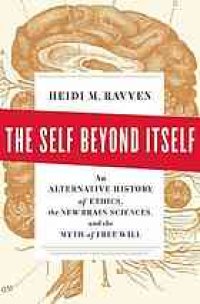
Ebook: The self beyond itself: an alternative history of ethics, the new brain sciences, and the myth of free will
Author: Heidi M. Ravven
- Tags: Ethics, Neurosciences, Free will and determinism, Ethik, Neurowissenschaften, Willensfreiheit, Personal Autonomy
- Year: 2013
- Publisher: New Press
- Language: English
- epub
Abstract: "A critique of 'free will' that draws on neuroscience, philosophy, and religion"--Provided by publisher.
"Few concepts are more unshakable in our culture than "free will," the idea that individuals are fundamentally in control of the decisions they make, good or bad. And yet the latest research about how the brain functions seems to point in the opposite direction, with fresh discoveries indicating the many ways in which humans are subject to influences well beyond the control of the conscious self. In The Self Beyond Itself, acclaimed scholar Heidi M. Ravven offers a wide-ranging and bold argument for a new vision of ethics, one that takes into account neuroscience, philosophy, and psychology, challenging the ways in which we view our actions--and, indeed, our selves. In a work of breathtaking intellectual sweep and erudition, Ravven offers a riveting and accessible review of cutting-edge neuroscientific research into the brain's capacity for decision-making--from "mirror" neurons and "self-mapping" to surprising new understandings of group psychology. The Self Beyond Itself also introduces readers to a rich, alternative philosophical tradition of ethics, rooted in the writing of Baruch Spinoza, that finds uncanny confirmation in modern science. Illustrating the results of today's research with real-life examples, taking readers from elementary school classrooms to Nazi concentration camps, Ravven demonstrates that it is possible to build a theory of ethics that doesn't rely on free will yet still holds both individuals and groups responsible for the decisions that help create a good society. The Self Beyond Itself is that rare book that injects new ideas into an old debate--and helps us consider anew our understanding of ourselves and of our world."--Jacket